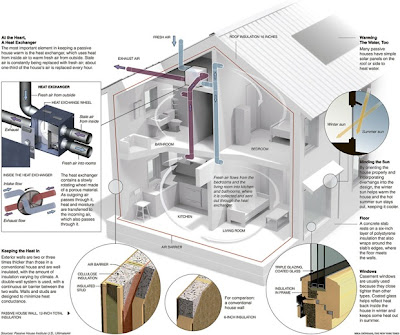After months of dithering, the Government is poised to give the go-ahead for the installation of smart meters in every home and business - 45m in total.From next year and during the following ten years, energy companies will replace existing gas and electricity meters with smart meters that can tell homeowners how much energy they are using at any time.
The £7bn smart meter revolution is a vital weapon in the Government's battle to cut energy consumption. Trials have shown that householders reduce their consumption by about 10% - an average of £10 a month - where smart meters are installed.
This is because they can see how much energy is wasted, for example by leaving lights on or keeping TVs on stand-by.
Smart meters will also finally put an end to the scandal of incorrect billing. No longer will energy suppliers be able to force customers to pay huge bills based on incorrect energy estimates.
The Government will also announce a multi-billion pound contract to create a centralised communication system to gather the data from the smart meters and distribute it to each home's energy supplier.
Energy Minister Mike O'Brien said: 'Smart meters will help consumers save energy and money and cut emissions. We've said we want smart meters in every home in the UK by the end of 2020.
'We will be the first country in the world to have such a huge refurbishment of our energy meters and we need to get it right. That includes making sure we have meters that can do all the things we want them to.'
It will be the responsibility of the energy companies to offer householders a choice of meter. They vary in sophistication, with some capable of pinpointing parts of the house where energy is being used.
It is understood that the Government has insisted that every meter should be capable of handling micro-generation data so that households which generate their own energy via solar panels or wind turbines will be able to sell the surplus back to the National Grid.
Smart meters will also enable suppliers to moderate peak demand through differential pricing throughout the day.
full article
Sunday 3 May 2009
Saturday 2 May 2009
What Exactly Is a "Passive House"

Passive home building is about installing features that regulate the building's interior temperature, without requiring active energy systems, such as heaters. Sealing the interior tight is key, features such as triple-thick walls, insulated, tightly-fitting double pane glass with reflective coating, and insulated floors. The orientation of the house itself helps as well, with windows that are shaded from the sun's natural arc during summer months, but more exposed to sunlight during winter months. The "heart," as The Times notes, is the heat exchanger, which sucks outside air into the house, and warms it using inside air. It's incredibly effective: Passive houses require no central heating. Though passive homes are estimated to cost perhaps 15% more to build than regular homes, their energy costs can easily be a whopping 85% lower.
All this sounds simple and irresistible, right? Yet there are only a few thousand passive homes in the world, and almost none of them are in the U.S. But the principles are quickly being disseminated in the building trades--Free Green offers free housing plans which utilize many passive principles.
full article
Four-seater electric car unveiled
The UK's first four-seater electric car which can travel up to 70 miles without recharging has been unveiled.
The 60mph vehicle, called the Citroen C1 ev'ie, will cost £16,850.
The main body of the car, based on the Citroen C1, is being made in the Czech Republic in a joint venture by Toyota, Citroen and Peugeot.
The Electric Car Corporation near Bedford aims to assemble 500 of them this year and hopes to make between 2,000 and 4,000 in 2010.
The Citroen C1 ev'ie can be fully charged in six to seven hours from a domestic 13 amp socket for about 90p, according to the makers, the Electric Car Corporation (ECC).
ECC chief executive David Martell said: "We believe this is the first serious alternative to a petrol or diesel car.
"It drives just like a petrol car and has excellent capacity for use in any town or city in the UK."
'Disappointed'
The cars are being assembled by a six-person team at Flitwick in Bedfordshire.
The government recently unveiled plans in the budget to boost the industry, with subsidies of up to £5,000 on electric or plug-in hybrid vehicles but it is thought that eligible cars will not be on the market until 2011.
Mr Martell said: "Obviously we are disappointed that it's not sooner."
The electric car market is currently reasonably limited, with models available at anything from £8,000 to more than £80,000 for some of the more high-performance models.
Sales have failed to take off in the past because of a number of reasons, like the length of time it takes to charge an electric car, the fact that only two-seaters have been available and that top speeds are considerably lower than their petrol and diesel counterparts.
full article
The 60mph vehicle, called the Citroen C1 ev'ie, will cost £16,850.
The main body of the car, based on the Citroen C1, is being made in the Czech Republic in a joint venture by Toyota, Citroen and Peugeot.
The Electric Car Corporation near Bedford aims to assemble 500 of them this year and hopes to make between 2,000 and 4,000 in 2010.
The Citroen C1 ev'ie can be fully charged in six to seven hours from a domestic 13 amp socket for about 90p, according to the makers, the Electric Car Corporation (ECC).
ECC chief executive David Martell said: "We believe this is the first serious alternative to a petrol or diesel car.
"It drives just like a petrol car and has excellent capacity for use in any town or city in the UK."
'Disappointed'
The cars are being assembled by a six-person team at Flitwick in Bedfordshire.
The government recently unveiled plans in the budget to boost the industry, with subsidies of up to £5,000 on electric or plug-in hybrid vehicles but it is thought that eligible cars will not be on the market until 2011.
Mr Martell said: "Obviously we are disappointed that it's not sooner."
The electric car market is currently reasonably limited, with models available at anything from £8,000 to more than £80,000 for some of the more high-performance models.
Sales have failed to take off in the past because of a number of reasons, like the length of time it takes to charge an electric car, the fact that only two-seaters have been available and that top speeds are considerably lower than their petrol and diesel counterparts.
full article
Friday 1 May 2009
LOW-CARBON COSTS DEPEND ON LIFESTYLE CHANGE
Wide-ranging changes in the way we live our lives could dramatically reduce the costs of switching to a low-carbon world, researchers said today.
Measures such as phasing out petrol cars in city centres, lowering the temperatures to which we heat our houses and an increase in internet shopping and tele-conferencing could all help the UK meet its goal to cut emissions by 80% by 2050.
If people are prepared to make lifestyle changes which save energy, it could cut the costs to consumers and businesses by up to £50 billion a year - halving how much is currently spent across the country on heat and electricity.
Tougher energy efficiency measures could also give the UK greater energy security and more time to develop low-carbon energy technology, including trapping carbon emissions from power stations and renewables.
But blocking certain green technologies such as onshore wind farms because of ``nimbyism'' could add to the costs of a move to a low-carbon economy, a report from the UK Energy Research Centre (UKERC) said.
Jim Skea, research director of UKERC, also warned that while renewable power would play a big role in hitting the 2050 goal, meeting EU targets to generate 15% of the UK's total energy from renewables by 2020 would be a ``very, very big struggle''.
He said the current barriers to the development of renewables, such as problems in planning and grid access for offshore wind, and the short timescale, meant the EU aims were more than challenging.
``Putting energy saving and the development of green sources of power at the heart of policy-making would make the UK a world leader in tackling climate change, increase energy security, end fuel poverty and create hundreds of thousands of new jobs.
``A green energy revolution is desperately needed to meet the challenges we all face.
``Time is running out - Gordon Brown must show that he has the political courage to develop a safer, cleaner future,'' he said.
full article
Measures such as phasing out petrol cars in city centres, lowering the temperatures to which we heat our houses and an increase in internet shopping and tele-conferencing could all help the UK meet its goal to cut emissions by 80% by 2050.
If people are prepared to make lifestyle changes which save energy, it could cut the costs to consumers and businesses by up to £50 billion a year - halving how much is currently spent across the country on heat and electricity.
Tougher energy efficiency measures could also give the UK greater energy security and more time to develop low-carbon energy technology, including trapping carbon emissions from power stations and renewables.
But blocking certain green technologies such as onshore wind farms because of ``nimbyism'' could add to the costs of a move to a low-carbon economy, a report from the UK Energy Research Centre (UKERC) said.
Jim Skea, research director of UKERC, also warned that while renewable power would play a big role in hitting the 2050 goal, meeting EU targets to generate 15% of the UK's total energy from renewables by 2020 would be a ``very, very big struggle''.
He said the current barriers to the development of renewables, such as problems in planning and grid access for offshore wind, and the short timescale, meant the EU aims were more than challenging.
``Putting energy saving and the development of green sources of power at the heart of policy-making would make the UK a world leader in tackling climate change, increase energy security, end fuel poverty and create hundreds of thousands of new jobs.
``A green energy revolution is desperately needed to meet the challenges we all face.
``Time is running out - Gordon Brown must show that he has the political courage to develop a safer, cleaner future,'' he said.
full article
Subscribe to:
Posts (Atom)
